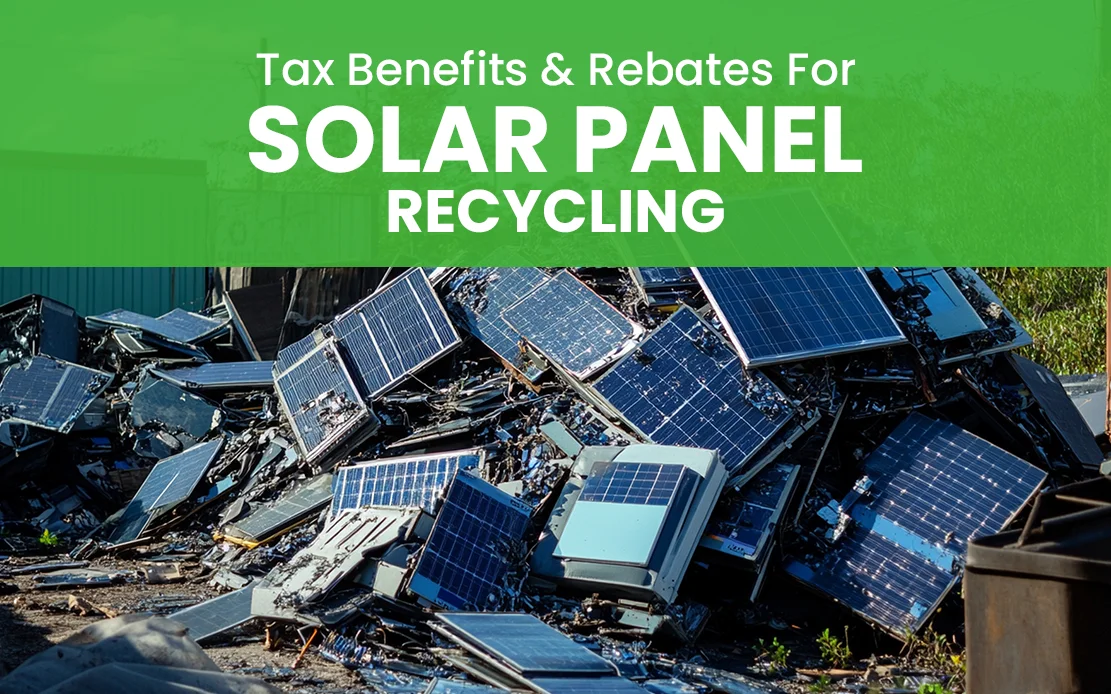What will happen to the end of life of solar panels? It is a critical question now significant because it has resulted from the first generation of rooftop solar installed in the 1990s. Their usual end of life is after 25-30 years. It recently came out as headline news in California piled-up old solar panels finally became an important issue of disposal.
Federal and State Regulations on Solar Panel Disposal
Improper disposal of solar panels also contains hazardous materials and can influence the environment. It is because of this that many states have come up with laws that specify how the decommissioned solar panels must be handled:
- California: Treats photovoltaic (PV) modules as hazardous waste.
- Hawaii: Solar panels are also categorized as hazardous waste.
- New Jersey: Promotes the reuse of solar panels, particularly by shipping them to low-income areas, while exploring a recycling program funded through an Advanced Recovery Fee on new panels.
- North Carolina: Requires projects larger than 2 megawatts to have a decommissioning plan.
- Washington: Established a manufacturer takeback program for solar panels.
All these notwithstanding, still in place is a holistic federal program for the recycling of solar panel.
U.S. Government Ensuring America's Future
The Government of America has recently taken steps to address the growing solar panel waste issue. A grant of $82 million has been allocated to expand infrastructure for solar panel recycling and production, along with an additional $20 million dedicated to developing longer-lasting panels and improved recycling methods.
In addition to these governmental efforts, EZ On The Earth, a leader in e-waste recycling, goes a step further by providing a wide range of recycling kits and recycling services that support eco-friendly initiatives across the U.S. To be part of the change and contribute to a sustainable future in your state, reach out to Team EZOT online to learn more about sustainable recycling.
The Economics of Solar Panel Recycling
Mainly, the cost of recycling panels is the greatest challenge. Recycling one panel ranges between $15 and $45. On the other hand, a landfill costs from $1 to $5 to process the same panel. Such a difference in prices can be so extreme that many will inevitably end up choosing the lowest-priced solution: landfill disposal-for themselves, apart from other people-with complete disregard for environmental consequences.
Laws and Policies to Encourage Responsible Solar Panel Recycling
Several states have begun to introduce laws aimed at reducing solar panel waste:
- California AB 1238: Aims to establish a recycling fee that will fund the disposal of solar panels, though it has yet to pass.
- Vermont: Proposes H.47, which would require all solar panel installers to include a decommissioning plan.
- Illinois: Formed a Renewable Energy Component Recycling Task Force in 2023 to address solar panel disposal.
- Arizona HB 2133: Introduced a solar panel disposal fund through the collection of installation fees.
Tax Benefits & Rebates for Solar Panel Recycling
Imagine getting a break on your taxes simply for recycling old solar panels! Some states are exploring tax credit programs that reward businesses and homeowners for making environmentally responsible choices. This could work similarly to existing incentives for installing solar panels, where a percentage of the recycling costs could be deducted from your taxes. It’s not just about being green; it’s about getting financial relief while doing it.
In addition to tax benefits, states are considering rebate programs that offer direct cash rewards. Think of it like the cash-back programs some cities have for recycling electronics. For solar panels, this could involve a one-time rebate or payment that offsets the cost of recycling, making it more attractive for both large-scale solar farms and individual homeowners. By reducing upfront expenses, rebates could drive a more widespread adoption of recycling practices.
- Oregon offers rebates through the Solar + Storage Rebate Program for installing solar panels and battery storage systems, but this does not extend to panel recycling yet.
- California is considering manufacturer take-back programs that could eventually cover recycling costs.
- Vermont is looking into decommissioning plans for solar installations, which could eventually include recycling rebates.
Final Words
As the U.S. government takes steps toward sustainable living, it sets an important precedent for countries worldwide. As solar panels reach the end of their lifespan, the need for recycling becomes urgent. Still, high costs often push people toward the cheaper, yet environmentally harmful, option of landfill disposal. States are exploring tax credits and rebates to incentivize responsible recycling, but much more needs to be done. At the same time, EZ On The Earth is stepping up to provide accessible recycling solutions. To ensure the valuable materials in solar panels are not wasted, it is essential that we push for policies that make recycling more economically viable—whether through rebates, tax incentives, or manufacturer programs. By investing in sustainable solutions today, we can protect the environment and make a lasting impact on the future.












